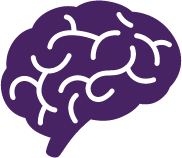January 2018
Millions of Americans Estimated to Have Preclinical Alzheimer’s
 Currently, an estimated 46.7 million Americans have preclinical Alzheimer’s — that is, brain changes associated with Alzheimer’s, but no symptoms of memory or thinking impairment — according to a new research article published late last year. The authors also forecast that the number with these preclinical brain changes — notably amyloid buildup in the brain and/or neurodegeneration — may reach 75.7 million by 2060. Currently, an estimated 46.7 million Americans have preclinical Alzheimer’s — that is, brain changes associated with Alzheimer’s, but no symptoms of memory or thinking impairment — according to a new research article published late last year. The authors also forecast that the number with these preclinical brain changes — notably amyloid buildup in the brain and/or neurodegeneration — may reach 75.7 million by 2060.
“Preclinical Alzheimer’s” is a hypothetical stage of the disease based on studies that found changes in Alzheimer’s biomarkers in the brain that occurred before problems with memory or thinking occurred. Not all people with brain changes associated with Alzheimer’s will actually progress to dementia (when memory, thinking, and reasoning impairment is sufficiently severe to impair daily life). Nonetheless, the study suggests that tens of millions of Americans may face the possibility of dementia due to Alzheimer’s disease.
These projections are the first-ever prevalence estimates of Alzheimer’s-associated brain changes at such an early stage. While only projections, these estimates can help shape the public health response and direct action toward early detection and diagnosis. The authors note that the development of effective primary and secondary interventions may lessen the future burden of Alzheimer’s and other dementias. Realizing the benefits of such preventive interventions will require early detection and diagnosis.
ROAD MAP ACTION ITEM E-01
Identify and promote culturally-appropriate strategies designed to increase public awareness about dementia, reduce conflicting messages, decrease stigma, and promote early diagnosis. |
The Healthy Brain Initiative Road Map — a public health guidebook jointly developed by the Centers for Disease Control and Prevention (CDC) and the Alzheimer’s Association — recommends increasing public awareness about the impact of cognitive issues to promote early diagnosis of cognitive impairment. Learn more in our public health spotlight and policy brief.
Now Available: 2016 BRFSS Cognitive Module State Fact Sheets
 Fact sheets for each of the 21 states that ran the Cognitive Module in the 2016 Behavioral Risk Factor Surveillance System (BRFSS) survey are now available at alz.org/publichealth. Surveillance collected routinely through BRFSS provide state-specific data that help observe health trends and direct public health action. Fact sheets for each of the 21 states that ran the Cognitive Module in the 2016 Behavioral Risk Factor Surveillance System (BRFSS) survey are now available at alz.org/publichealth. Surveillance collected routinely through BRFSS provide state-specific data that help observe health trends and direct public health action.
The Cognitive Module measures subjective cognitive decline (SCD) — the self-reported increase of confusion or worsening memory problems occurring over the past 12 months. Increasingly, SCD is seen as a solid predictor of future dementia risk and may help preview the future burden cognitive impairment will have on a state’s population.
Each fact sheet has state-specific data for SCD, including how many people are experiencing difficulties in their day-to-day lives and how many have not talked to a health care provider about their memory problems. View fact sheets for 2016, 2015, and earlier years.
Middle-Aged Americans Self-Reporting Higher Rates of Cognitive Limitations than Prior Generations
 Many Americans in their 50s report higher rates of cognitive limitations compared to prior generations at the same age, according to a report published in the journal Health Affairs. In addition, more middle-aged Americans also report limitations in physical functioning and worse overall health than previous cohorts at the same age. Many Americans in their 50s report higher rates of cognitive limitations compared to prior generations at the same age, according to a report published in the journal Health Affairs. In addition, more middle-aged Americans also report limitations in physical functioning and worse overall health than previous cohorts at the same age.
ROAD MAP ACTION ITEM E-04
Coordinate national and state efforts to disseminate evidence-based messages about risk reduction for preserving cognitive health. |
As evidence accumulates that there are ways to reduce the risk of cognitive decline — particularly with regards to heart health, managing certain chronic conditions, and regular physical activity — public health can take action by incorporating brain health messages into existing health promotion and education campaigns, as highlighted in the Healthy Brain Initiative Road Map. The New Mexico Department of Health, for example, provides information about brain health on its Healthy Aging website.
Emergency Room Visits Account for Half of All Hospital Care
 Nearly half of all care provided at hospitals occurs in the emergency room, according to a new study published in the International Journal of Health Services. Examining hospital-based care across the United States over a 14-year time period, 48 percent of the 3.5 billion hospital-based health care contacts occurred in emergency departments. Health care policy discussions often focus on costly and lengthy inpatient care, but this study uncovered the growing role that emergency departments play in population health care utilization. Nearly half of all care provided at hospitals occurs in the emergency room, according to a new study published in the International Journal of Health Services. Examining hospital-based care across the United States over a 14-year time period, 48 percent of the 3.5 billion hospital-based health care contacts occurred in emergency departments. Health care policy discussions often focus on costly and lengthy inpatient care, but this study uncovered the growing role that emergency departments play in population health care utilization.
ROAD MAP ACTION ITEM W-06
Educate health care providers about validated cognitive assessment tools that could be administered in settings such as emergency rooms and acute care hospital admission offices. |
Similarly, the Injury and Violence Prevention Branch of the North Carolina Division of Public Health found in a separate analysis that the number of patients with dementia visiting emergency departments increased 168 percent over a four-year period. Dementia complicates all levels of care and is not always readily recognizable upon initial examination. The public health community can ensure emergency services personnel are educated about and trained to assess for cognitive impairment using validated assessment tools, as recommended in the Healthy Brain Initiative Road Map.
The Alzheimer’s Public Health E-News is supported by Cooperative Agreement # NU58DP006115-03 from the Centers for Disease Control and Prevention (CDC). Its contents are solely the responsibility of the Alzheimer’s Association and do not necessarily represent the official position of the CDC.
For subscription services or to view previous issues of Alzheimer’s Public Health News, please visit http://alz.org/publichealth/public-health-news.asp or contact John Shean (jshean@alz.org).

|